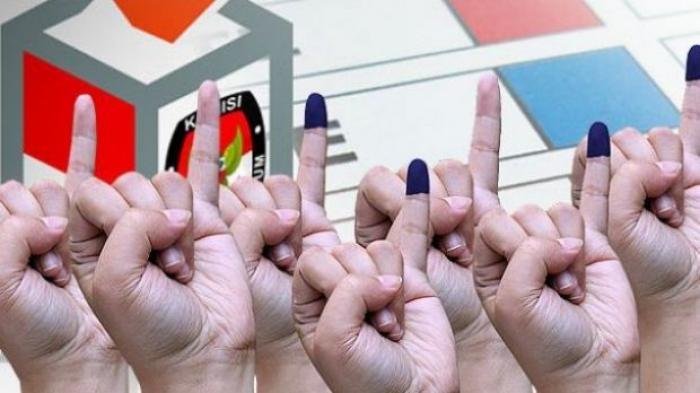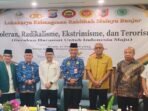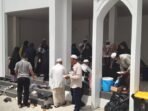Banjarmasin – The validity of voter data in Local Leaders Election (Pilkada) is often a problem during election disputes. Political observer from the Islamic University of Kalimantan (UNISKA) Banjarmasin, Dr M Uhaib As’ad, gave an assessment that the validity of voter data had to be corrected because he was judged not yet valid. So that it cannot be used as a reference for determining the number of voters in each election event.
As a result, the data is prone to being marked-up or conjured up for the benefit of certain candidates. In South Kalimantan, the determination of the number of voters for the 2020 Pilkada by the General Election Commissions (KPU) was also marked by criticism by the South Kalimantan Election Supervisory Agency (Bawaslu). This is related to the lack of maximum verification, and a significant decrease in the number of voters in the Temporary Voters List (DPS) of the South Kalimantan Pilkada.
In the 2019 Election, the final voter list (DPT) in South Kalimantan was recorded at 2,869,166 voters. Meanwhile, when welcoming the South Kalimantan Pilkada, the number of DPS released by the South Kalimantan KPU at the Open Plenary Meeting at Treepark Hotel Banjarmasin on Tuesday (9/15/2020) became 2,787,624 voters. This means that there was a reduction of 81 thousand voters.
Seeing this phenomenon, Dr Uhaib As’ad, who was met at his residence in the Surgi Mufti area of Banjarmasin on Saturday (9/19/2020) afternoon, smelled something fishy. He said Indonesia was the only country that did not have valid data regarding population numbers.
“Instantly, whether it is Pilkada or Presidential Election (Pilpres) and it can be marked up for the benefit of certain candidates. Moreover, the power is held by the incumbent, we really ask how many ‘fixed’ South Kalimantan residents are? ” Uhaib said.
Although the population in South Kalimantan can be seen statistically, according to Uhaib, still, this cannot be explained rationally. From his point of view, a decrease in the number of voters by 81,000 voters is not something surprising.
“Since it could (allegedly) mark-up or be reduced. Why was South Kalimantan in the past so high in data from the last election? This is the lack of clarity in the population system, no longer a question of unclear or uncertain identity card (KTP) or scattered on the streets, all kinds of things. Actually, Indonesia is a country that is not well maintained in terms of data and population,”explained Uhaib.
According to him, the matter of population data in Indonesia is not a priority. Uhaib himself compared other countries such as Malaysia to Brazil which have managed well in terms of population data.
“This is the population data management system that has gone wrong in South Kalimantan. We can ask why the update (number of voters) is different from the previous one.” complained Uhaib.
Logically, from his point of view, instead of decreasing, the number of voters in a certain time span, for example 4-5 years, should increase.
He suspects, there is a process of omitting political interests. He gave an example; residents who were not old enough and have not had voting rights in 4 to 5 years ago, this year can fulfill their voting rights.
He said, those who are competent in this matter are those who are involved in population data.
“It should increase (the number of voters). For example, 80.000 voters, but it actually decreased. It’s strange, if the decline is only 5.000 or 6.000, that’s only natural. How much is this? 81.000, and this (number) of votes is significant, “he explained.
Uhaib is worried that there are residents of South Kalimantan who cannot fulfill their voting rights when voting on December 9, 2020. Of course, this is very detrimental to the democratic rights of the people.
“There are citizens who are not registered and do not have voting rights and come to the polling station (TPS). This is an accident in the state and cannot be tolerated, “concluded Uhaib.
As is well known, the contestation of voters will dominate the incumbent guerrilla Sahbirin-Muhidin versus the challengers Denny-Difri in the big match on 9 December.
A number of areas with fat voter bases, of course, will become targets of contestation between candidates. Likewise, an area that becomes a “gray zone” or does not become a candidate base areas, will also become a fairly fierce battlefield.
It is estimated that the fight will take place in three zones. Namely the coastal zone (Kotabaru, Tanah Bumbu, and Tanah Laut), urban zone (Banjarmasin, Martapura, and Banjarbaru) and the Hulu Sungai or Banua Anam zone (Hulu Sungai Utara, Hulu Sungai Tengah, and Hulu Sungai Selatan).
Referring to the temporary voter list data (DPS), which was launched by the South Kalimantan KPU at the plenary meeting of the South Kalimantan Regional Election DPS recapitulation, Tuesday (9/15/2020) afternoon, there were 2,787,624 voters spread across 13 districts / cities who were targeted.
Starting from Tapin with 132,182 voters, Tanah Laut 232,526 voters, Tanah Bumbu 219,258 voters, Tabalong 166,652 voters, Kotabaru 209,256 voters, and Banjarmasin 447,612 voters.
Next are Banjarbaru with 167,039 voters, Hulu Sungai Utara 161,927 voters, Hulu Sungai Tengah 185,282 voters, Hulu Sungai Selatan 166,259 voters, Batola 220,630 voters, Banjar 387,661 voters, and Balangan 91,340 voters.\
anang/irfan











